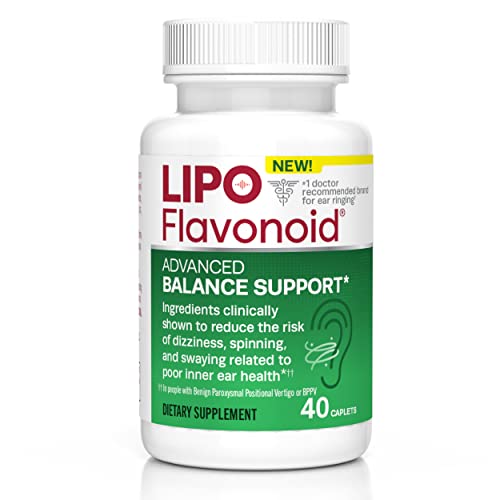Can You Buy Anything Over The Counter For Vertigo

Imagine waking up one morning, ready to tackle the day, only to find the world spinning uncontrollably. The room tilts, your stomach churns, and a wave of nausea washes over you. It's an unsettling, disorienting experience that can leave you feeling helpless and searching for immediate relief. Vertigo, that unwelcome guest, can disrupt your life in an instant.
This article explores the over-the-counter (OTC) options available for managing vertigo. While a trip to the doctor is always recommended to diagnose the underlying cause, understanding what you can readily access at your local pharmacy can offer comfort and potentially bridge the gap until you receive professional medical advice.
Understanding Vertigo
Vertigo isn't just feeling dizzy; it's a specific sensation of spinning or whirling. It's a symptom, not a disease, often stemming from issues within the inner ear or, less frequently, the brain. Benign Paroxysmal Positional Vertigo (BPPV) is one of the most common causes, triggered by changes in head position.
Other causes include Meniere's disease, vestibular neuritis, and even migraines. According to the National Institute on Deafness and Other Communication Disorders (NIDCD), about 69 million Americans have experienced some form of vestibular dysfunction. Determining the root cause is essential for effective treatment, and that often requires the expertise of a healthcare professional.
The Role of Over-the-Counter Medications
While OTC medications can't cure vertigo, they can provide relief from some of its accompanying symptoms. Motion sickness medications are frequently used to combat the nausea and vomiting associated with vertigo. These medications work by suppressing the signals that trigger the vomiting center in the brain.
Dimenhydrinate (Dramamine) and Meclizine (Bonine) are two commonly available antihistamines that fall into this category. They are relatively easy to access and can be a first line of defense against the discomfort vertigo brings.
Exploring Specific OTC Options
Dimenhydrinate (Dramamine) is a widely recognized motion sickness medication. It helps reduce nausea, vomiting, and dizziness. However, it can also cause drowsiness, so caution is advised when operating machinery or driving.
Meclizine (Bonine) is another antihistamine that's often preferred due to its longer-lasting effects and potentially less drowsiness compared to dimenhydrinate. Both medications are available in various strengths, so it's important to follow the dosage instructions carefully.
Other OTC options, while not specifically for vertigo, can help manage related symptoms. For example, ginger supplements or ginger ale can help alleviate nausea. Some individuals find relief through acupressure bands designed to combat motion sickness.
The Limitations of OTC Treatments
It's crucial to remember that OTC medications only address the symptoms of vertigo. They don't tackle the underlying cause. Relying solely on OTC remedies without seeking medical advice could delay proper diagnosis and treatment of a potentially serious condition.
If your vertigo is severe, persistent, or accompanied by other symptoms like hearing loss, headache, or vision changes, it's imperative to consult a doctor. These could be signs of a more complex underlying problem that requires specific medical intervention.
When to See a Doctor
While OTC medications can provide temporary relief, certain situations warrant immediate medical attention. Persistent vertigo that doesn't improve with OTC remedies should be evaluated by a doctor.
Seek prompt medical care if you experience any of the following along with vertigo: severe headache, fever, stiff neck, blurred or double vision, hearing loss, difficulty speaking, weakness in your limbs, or loss of consciousness. These could indicate a serious underlying condition like a stroke, infection, or neurological disorder.
A doctor can perform a thorough examination to determine the cause of your vertigo. They may recommend various tests, such as a hearing test, balance test, or imaging scans, to aid in diagnosis.
Diagnostic and Treatment Approaches
Once the cause of your vertigo is identified, your doctor can recommend appropriate treatment options. For BPPV, a simple maneuver called the Epley maneuver can often provide immediate relief. This involves a series of specific head movements performed by a healthcare professional to reposition the crystals in your inner ear.
For other causes of vertigo, treatment may involve medications, physical therapy, or, in rare cases, surgery. Vestibular rehabilitation therapy can help improve balance and reduce dizziness through specific exercises and techniques.
Lifestyle Adjustments and Home Remedies
Alongside medical treatment, lifestyle adjustments can play a significant role in managing vertigo. Avoiding sudden head movements, getting enough sleep, staying hydrated, and managing stress can all help reduce the frequency and severity of vertigo episodes.
Some individuals find relief through specific dietary changes, such as limiting caffeine and alcohol intake. Others practice relaxation techniques like deep breathing or meditation to manage anxiety associated with vertigo.
Living with Vertigo: A Holistic Approach
Living with vertigo can be challenging, but it's manageable with the right approach. A combination of medical treatment, lifestyle adjustments, and coping strategies can help you regain control and improve your quality of life. Remember to work closely with your doctor to develop a personalized treatment plan that addresses your specific needs.
Support groups and online communities can also provide valuable resources and connections with others who understand what you're going through. Sharing experiences and learning from others can offer encouragement and practical tips for managing vertigo.
Ultimately, while OTC medications can offer a temporary reprieve, they are not a substitute for proper medical evaluation and treatment. Listen to your body, seek professional advice, and take an active role in managing your condition to navigate the spinning world of vertigo with greater confidence and stability.
Vertigo, while a disruptive force, doesn't have to define your life. Armed with knowledge and a proactive approach, you can navigate the challenges and find your balance again. The key is to listen to your body, seek professional guidance, and remember that you are not alone in this journey. The world might spin, but you can find your footing.


















